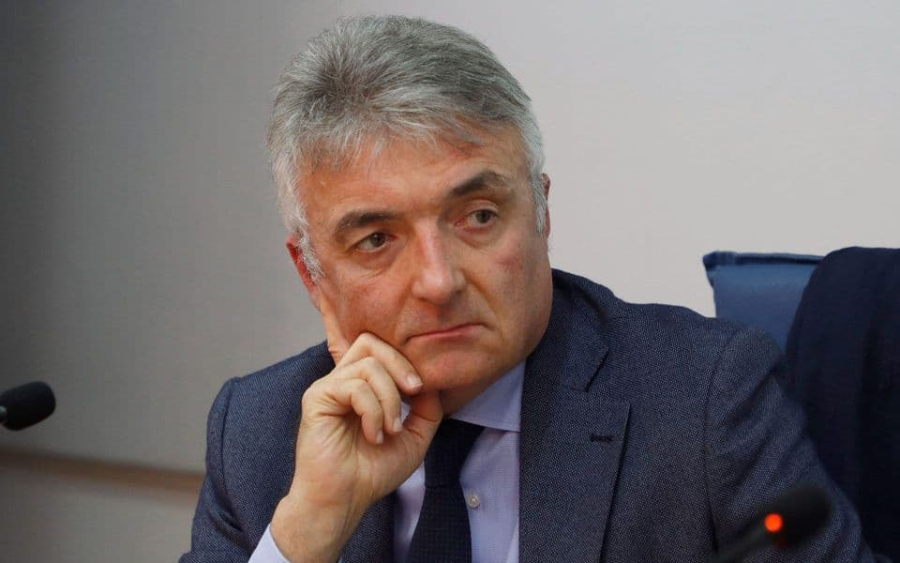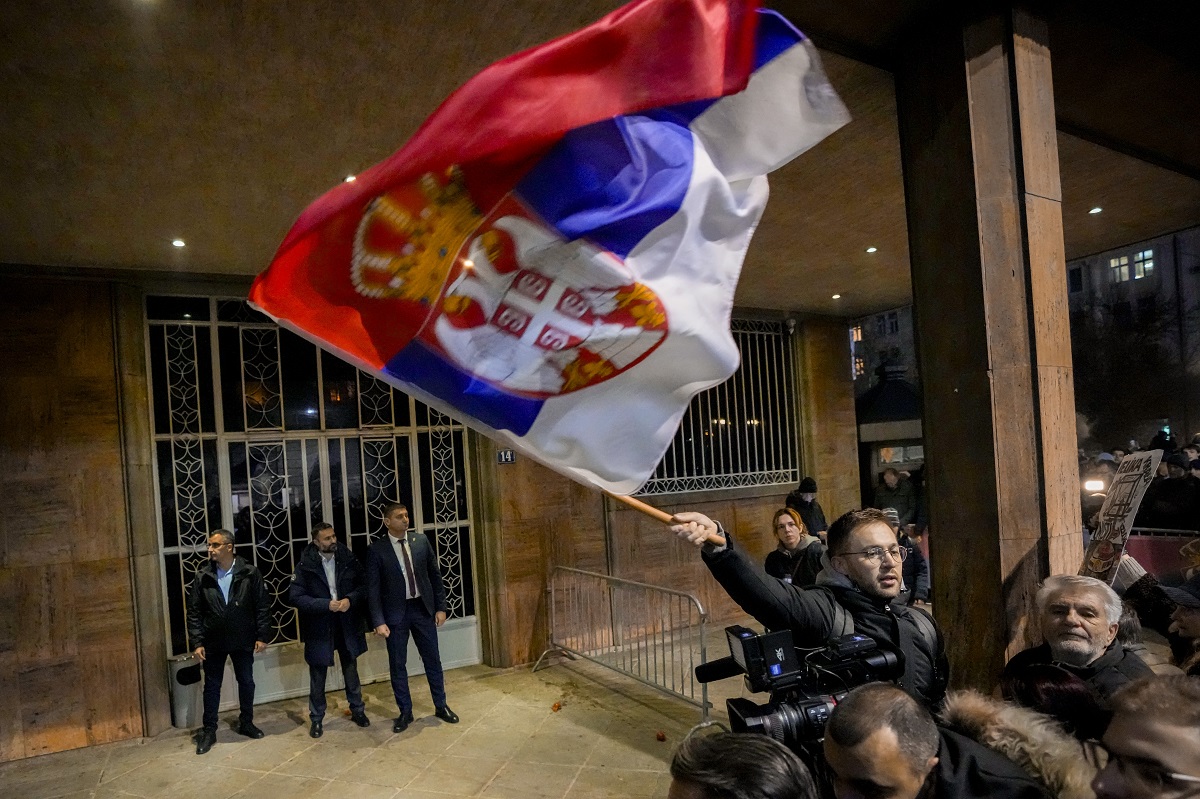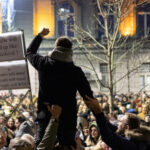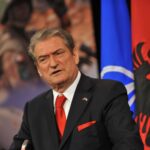The outcome of Serbian snap elections was predictable.
On the other side – the present outcry of Serbian opposition forces is legitimate – there was massive fraud, based on propaganda by controlled media, ending with intimidation of voters and “import of votes” from Republika Srpska. (This scenario – false/illegal voters coming from neighboring countries – was present in last few elections in Montenegro, too, where “import of votes” was organized from both Serbia and Republika Srpska. Some analysts point out to that pattern now, as a new technique by which Aleksandar Vučić can influence and control the outcome of elections not only in Serbia, but also in Montenegro…)
The post-election situation in Serbia changes on daily basis. Initial euphoria of Serbian Progressive Party (SNS), given the “result” of absolute parliamentary majority – after the initial opposition protests, primarily in Belgrade – was transformed in concern that the political game was not over yet.
Danger of Serbian “Maidan” was mentioned, not only in Belgrade (PM Brnabić), but also in Moscow (Russian MFA spoke-person Zaharova). And that is not an accident.
The Western position has also evolved in few post-election days. Statements that “the outcome is dominantly legitimate” (EU), and that “we are ready to co-operate with the new government, despite the problems during the election process” (US Department of State), were promptly changed into more cautious and critical observations and positions, where each of the major electoral process problems should be thoroughly investigated.
Whatever happens in coming days and weeks (months, possibly), there are few messages and lessons which should not be ignored and which may be important to understand developments in Serbia itself, but also in the context of its relations with neighboring countries, as well as its position vis-a-vis the West and the East.
First, internal political situation in Serbia could be described as a “prolonged status quo”. Vučić and his political party, together with right-wing “auxiliary” political forces, services, the Church, media outlets (Russian ones included) will continue to dominate the leading political narrative. And that is the idea of “defense of Kosovo” and the “Serbian World”.
It should be noted that the main opposition forces differ very little in both respects from the official Belgrade position. Nationalism has penetrated all the public, social, cultural and political spheres in Serbia. Ones who oppose it – are destined to have less than on percent of public support, as it was clearly shown on December 17.
Second, Serbia will continue to exercise its influence both in Montenegro and in Republika Srpska. The presence of Andrija Mandić, newly-elected president of Parliament of Montenegro, at the SNS press conference and celebration in Belgrade was heavily criticized by opposition forces back home, but with no concrete result. Mandić has even used the opportunity to remind both Jakov Milatović, the President of Montenegro, and Milojko Spajić, the Prime Minister, that they would not be in their present positions if there was not a support precisely by political forces in Montenegro directly linked with Vučić and Serbia. So, the electoral outcome in Belgrade, even if disputed, has re-enforced the influence of pro-Serbian nationalists forces in Montenegro.
The same applies to official Banjaluka. Vučić himself has re-emphasized – father the allegations about the electoral fraud with voters imported from Bosnia and Herzegovina Serbian entity – the “historic” and “brotherly” relations with Serbian people living outside of Serbia and his commitment to continue with the same policy, irrespective of accusations.
Third, there will no be major changes in relation to Kosovo issue. Vučić and his services have managed to “tranquilize” and neutralize the public opinion in this particular context – so no relevant opposition group dares to question his (destructive and dangerous) attitude towards Kosovo issue. In fact, that seems to be the most important pillar of Vučić reign – the undisputed policy on Kosovo. Serbia has entered this historic trap in 1999, and there is no politically significant attempt to get rid of it. So, it will remain the constant of Serbian political culture for years to come and the election have only confirmed that, whatever the distribution of votes.
Fourth, it seems that the West was prepared for “no result”. The appeasment policy with Vučić has produced no results, but – nevertheless – one could expect the continuation of such an useless effort. The reason is simple: Russia.
Both the US and the EU continue to support Vučić – primarily financially, but also in political terms. The idea of “stability” in Serbia – however artificial and false it may be – remains the leading notion in the attitude of the West.
While, for the sake of clarity, there could be heard voices of disharmony among EU countries on that particular subject, the Balkan/Serbian diplomacy of US shows no signs of change. Vučić continues to be understood and addressed as an inevitable player/partner – even the key one for the US – in the Western Balkans, despite all grave mistakes and errors, including the recent terrorist actions in Northern Kosovo … In the year of US presidential elections, that kind of American “stand-by” diplomacy could be proven dangerously wrong – not only for Serbia, but for the whole Western Balkans.
In the meantime, Aleksandar Vučić receives the congratulation letters with best wishes from Russia, China, North Korea and Venezuela. His “victory” will be cheered in neighboring Hungary, too.
They can be very satisfied in Kremlin. The continuation of ambiguous position of Serbia – to use that euphemism – could be described as a big strategic victory of Moscow. Serbian position will remain to be the biggest obstacle for the overall stability and security in the region. Resemblance of “Serbian World” to the “Russian World” is the best present Vučić can deliver to Putin. That is: to continue to deliver, again and again …
The conclusion is grim.
In US, Mr Richard Grenell, former top-diplomat of Trump administration, praises SNS/Vučić victory in Serbia, with “arguments” which clearly show his connection with Belgrade regime.
In Belgrade, regime itself will try to survive politically and in all other aspects – waiting for the presidential race in which Donald Trump could win again – being perfectly aware that, until the outcome will be know in US, no major change in Western policy in the Western Balkans could be expected.
So – despite new dramatic events and tensions – all quiet on Serbian front!
Miodrag Vlahović. Montenegrin politician and former diplomat. The first Minister of Foreign Affairs of Montenegro. Former Montenegro’s Ambassador to the USA, Canada, Iceland, Holy See, Order of Malta.




